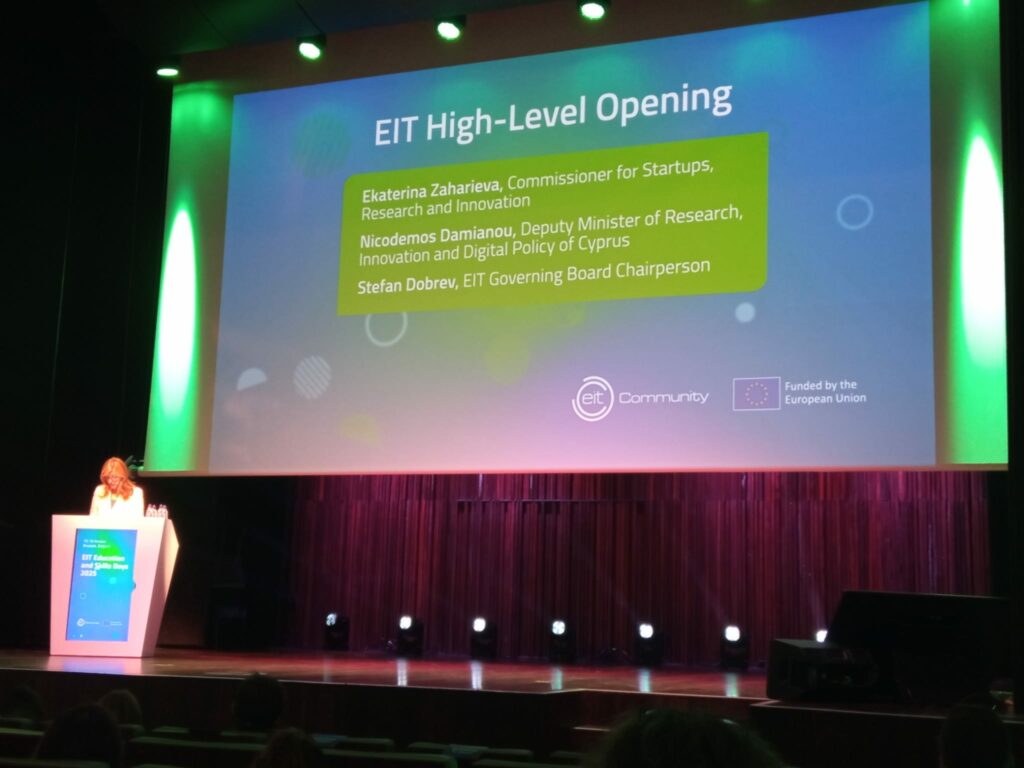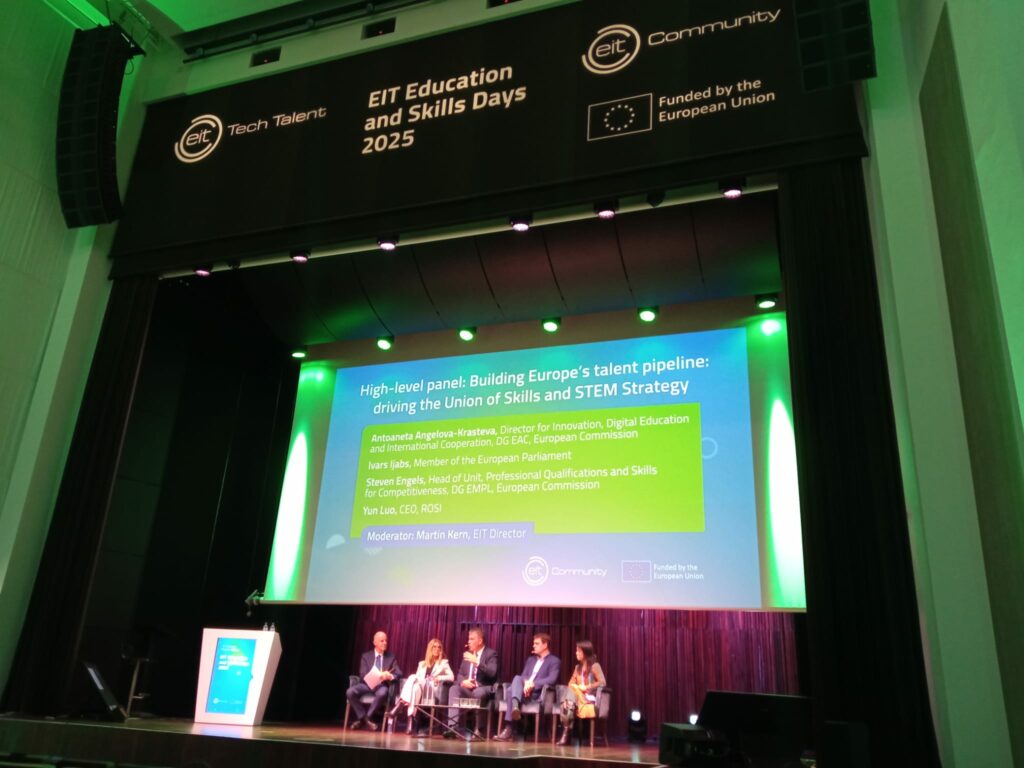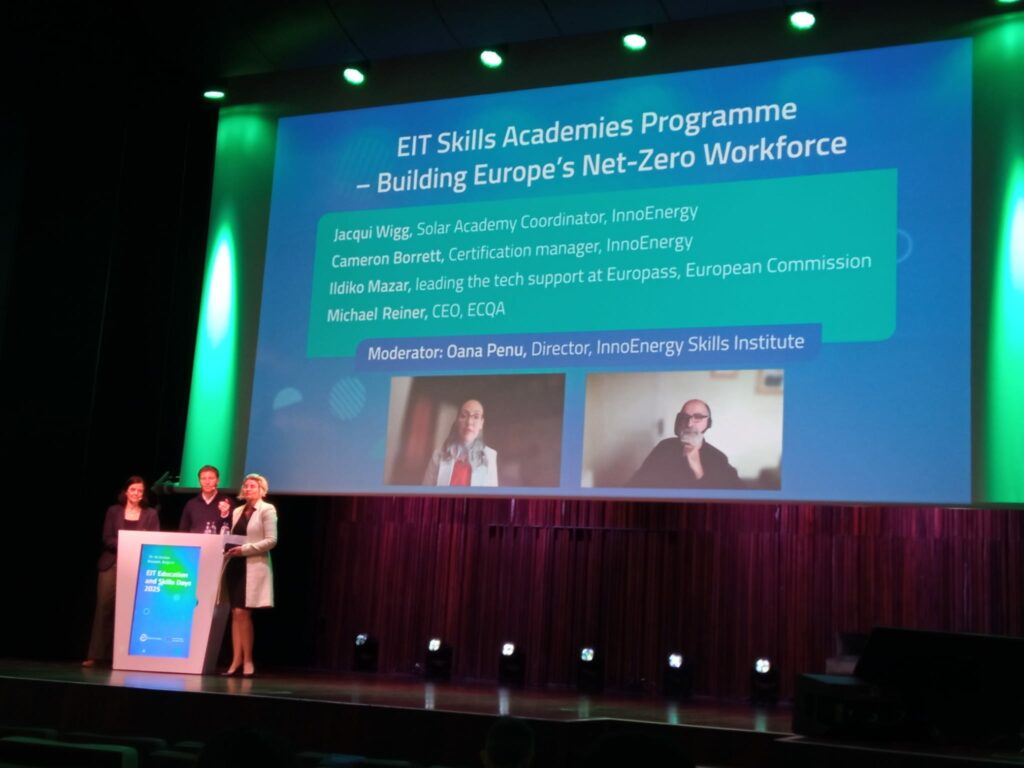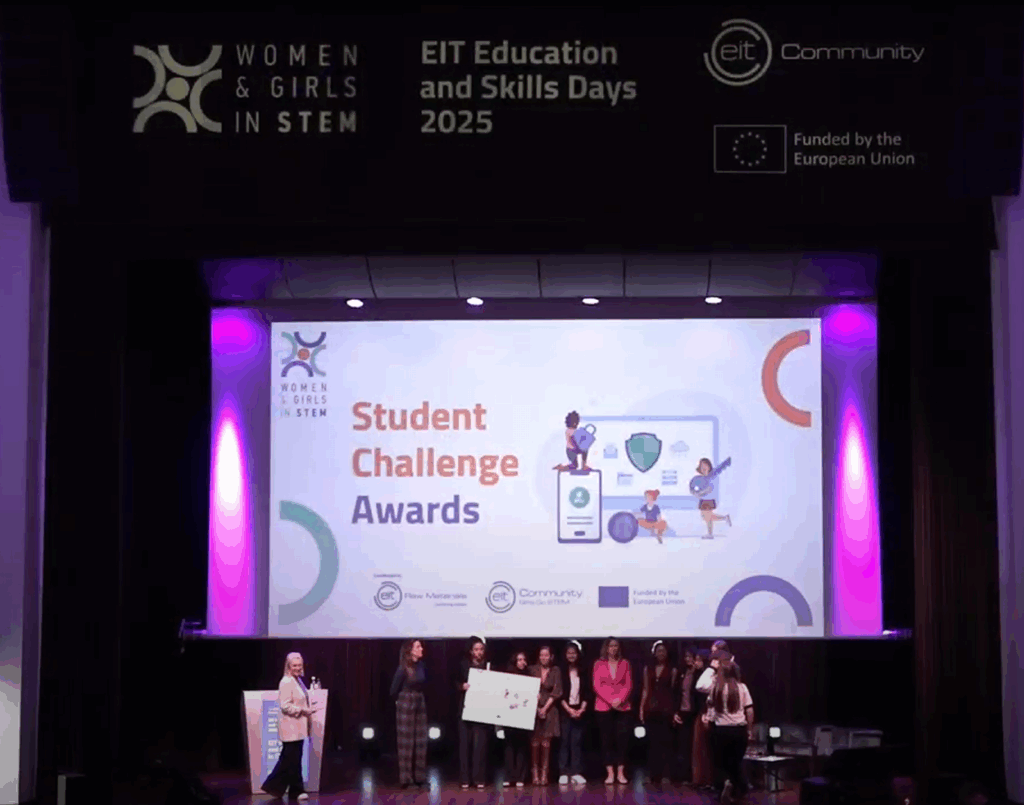EARLALL at the EIT Education and Skills Days 2025: Regions powering Europe’s talent for the digital era
17/10/2025

15–16 October 2025, Brussels – EARLALL participated in the EIT Education and Skills Days 2025, an inspiring, forward-looking gathering dedicated to one of Europe’s greatest challenges – and opportunities: building the skills base that will sustain Europe’s competitiveness in the digital age.
The two-day programme brought together EU representatives, regional authorities, universities, VET and adult learning providers, industry leaders, startups and civil society. Discussions explored how innovation ecosystems can respond to current and future labour-market needs, how to connect education with business, and how to ensure that the Union of Skills vision translates into concrete action across Europe’s territories.
The EU Hight Level opening started from Ekaterina Zaharieva, EU Commissioner for Startups, Research and Innovation, underlined the urgency of addressing Europe’s skills shortages as a prerequisite for competitiveness and growth.
“Our competitiveness struggles because of the skills shortages. This is why the European Commission launched the European Union of Skills, accompanied by a strategic plan,” she stated. She emphasized that the EIT Skills Academies play a crucial role in connecting education with the market, bridging the gap between business needs and talent development. “Without bringing together education and business,” she noted, “we will not be successful.”
Looking ahead, Mr Damianou noted that as Cyprus prepares for its EU Council Presidency in 2026, the country remains committed to advancing the Union of Skills and ensuring alignment between Europe’s Startup and Scaleup Strategy and its innovation and education policies.
Stefan Dobrev, Chairperson of the Governing Board of the European Institute of Innovation and Technology (EIT), underlined the interdependence between scientific knowledge, innovation, and practical skills.
Speakers underlined that skills shortages are a strategic risk for Europe. Building the Union of Skills requires: tighter links between education, research and business; entrepreneurial and transversal skills (communication, problem-solving, teamwork) alongside technical expertise; open, portable credentials and reliable recognition to support mobility across sectors and borders.

The high-level discussion focused on how Europe can strengthen its talent base through skills, innovation and collaboration. Ivars Ijabs, Member of the European Parliament, underlined that skills are central to Europe’s competitiveness and must be seen as part of a lifelong learning journey. Representing the European Commission, Antoneta (DG EAC) highlighted the unique value of the EIT model, combining education, research and business to boost competitiveness, promote STEM education, and ensure no region or gender is left behind. Steven Engels, Head of Unit, Professional Qualifications and Skills for Competitiveness from European Commission stressed the importance of industry involvement and reliable, portable microcredentials that reflect real competences and support workforce mobility. Finally, Yun Luo, CEO of ROSI, showcased how the EIT’s support for startups helps connect sustainability, innovation and talent, emphasizing interdisciplinary skills and a gender-equal work culture as key to Europe’s green and digital future.
EIT Skills Academies: from blueprint to delivery
Building Europe’s Net-Zero Workforce showcased progress on the Net-Zero Industry Academies, including the European Solar Academy and the European Battery Academy

With the raw materials sector at a crossroads, leaders from industry, VET and higher education highlighted the European Raw Materials Academy as a bridge between industrial demand and education supply, aiming to equip the workforce for the green and digital transitions. Stakeholders presented a shared vision to train large numbers of learners in advanced materials, translating science into market impact and embedding interdisciplinarity across programmes.
Deep Tech Talent
The EIT Deep Tech Talent Initiative spotlighted the need to train one million people in deep tech skills and to ensure inclusive, flexible training pathways. Discussions stressed: curricula that adapt quickly to real-world needs; university–VET–industry partnerships and tech-transfer ecosystems; EU-aligned micro-credentials for lifelong learning and labour-market mobility.
Impact stories from training providers and startups illustrated how co-created programmes accelerate uptake of AI and advanced technologies across regions, including in rural areas.
Girls in STEM: ambition and opportunity
Anna Lindén (Governing Board Member, EIT) opened the second day by announcement of the Girls Go STEM, emphasizing that “the future depends on students – and we must act.” Bold objectives were reiterated: 2.3 million people trained by 2028, and hundreds of thousands of girls inspired, with Girls Go Circular aiming to train 40,000 girls by 2027.
The panel discussion explored the wide range of cybersecurity careers – beyond coding – including roles in design, psychology, law, and policy. How diverse perspectives, especially from women, are essential to shaping a safer digital future

The event also celebrated the creativity of young innovators, as three finalist teams pitched their cybersecurity solutions before an expert jury and audience. Winners received the Cambridge University Press & Assessment Prize – a trip to Cambridge to meet inspiring women in tech and explore the university’s innovation ecosystem.
The second part of the day focused on the EIT Higher Education Initiative, exploring its impact, alignment with EU priorities, and the soft launch of the 2025 Call. Discussions addressed how higher education can balance research, education, and innovation, foster entrepreneurship and interdisciplinarity, and strengthen university – industry partnerships based on trust and shared value. Speakers also reflected on what defines an entrepreneurial mindset in academia and how leadership can drive innovation culture.
The event concluded with remarks from Luca Perego, Head of Unit for Innovation and EIT at the European Commission, and Ilaria Tagliavini, Head of Operations for Innovation, Education and Communication at EIT.
EARLALL remains committed to making lifelong learning the engine of Europe’s innovation capacity – ensuring that every region can attract, develop and retain the talent needed for a competitive, sustainable and inclusive future.

